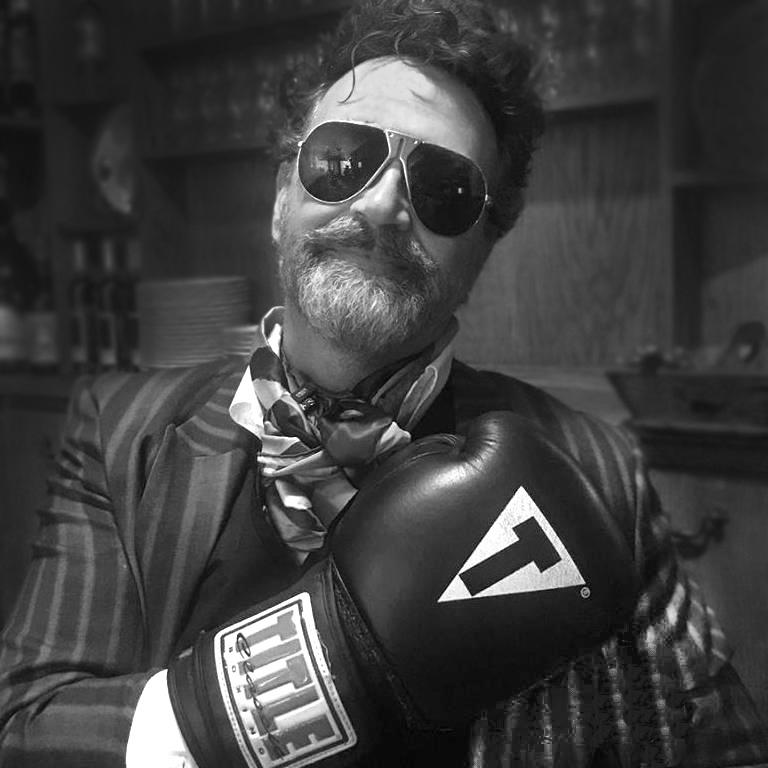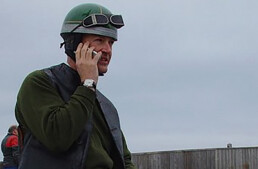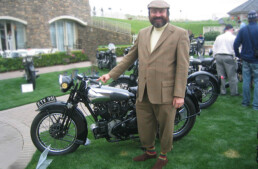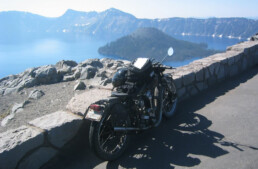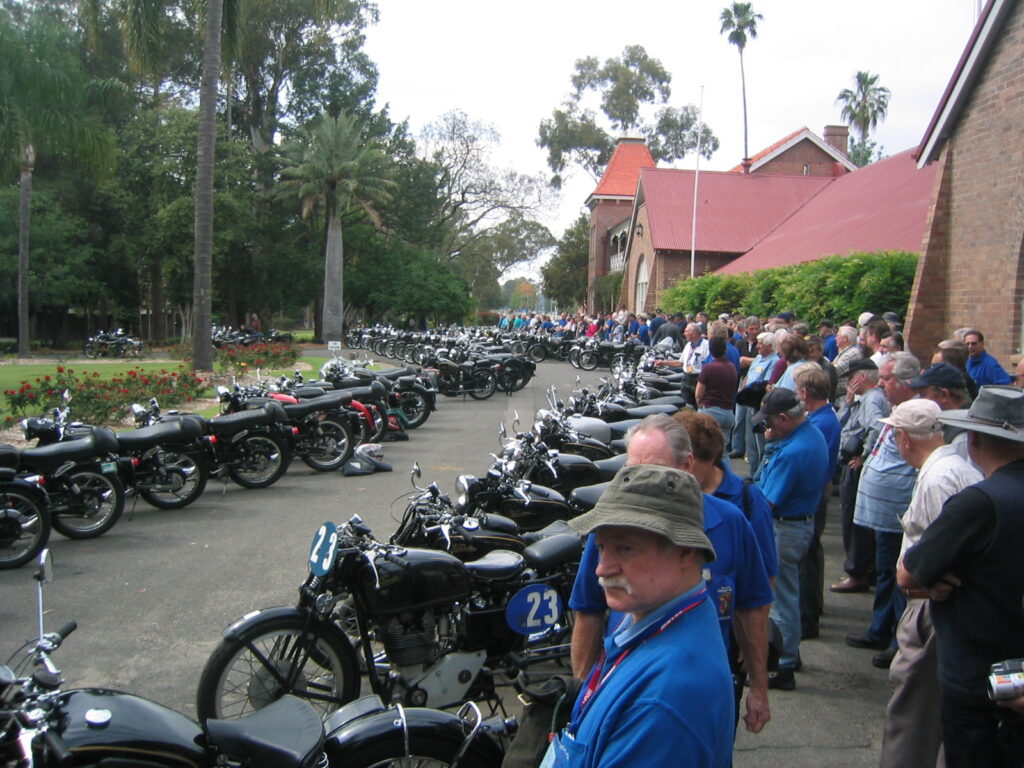
Keith Hamilton joined us with his wife Barbara, towing his amazing 1923 Velocette Lady’s model, which Keith spent years making as correct as possible. He fabricated parts like the alloy cylinder muff and petrol tank, plus a hundred other small parts to make the little beastie run again. He was kind enough to let me have a go on a very rough dirt parking lot, outside the narrow-gauge railway we were about to embark on.
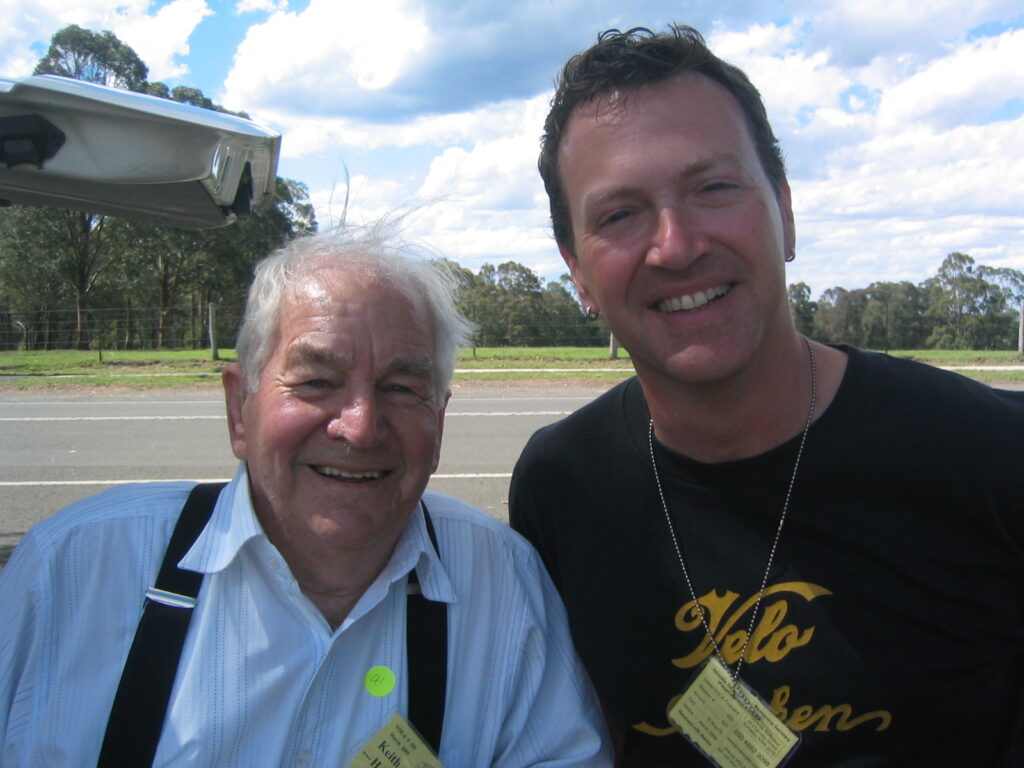
The Velo felt spindly, but once the engine was happy with its two throttle lever settings, it had a surprising turn of power for a little 225cc two-stroke single. Keith is a club stalwart and a regular contributor to the Velo Tech Forum, signing off as ‘KFO’ (Keith from Oz). His stories about pre-and post-war Velocetting are a treasure – I’ll have to do a whole post on him someday. [I did, as a memorial, here]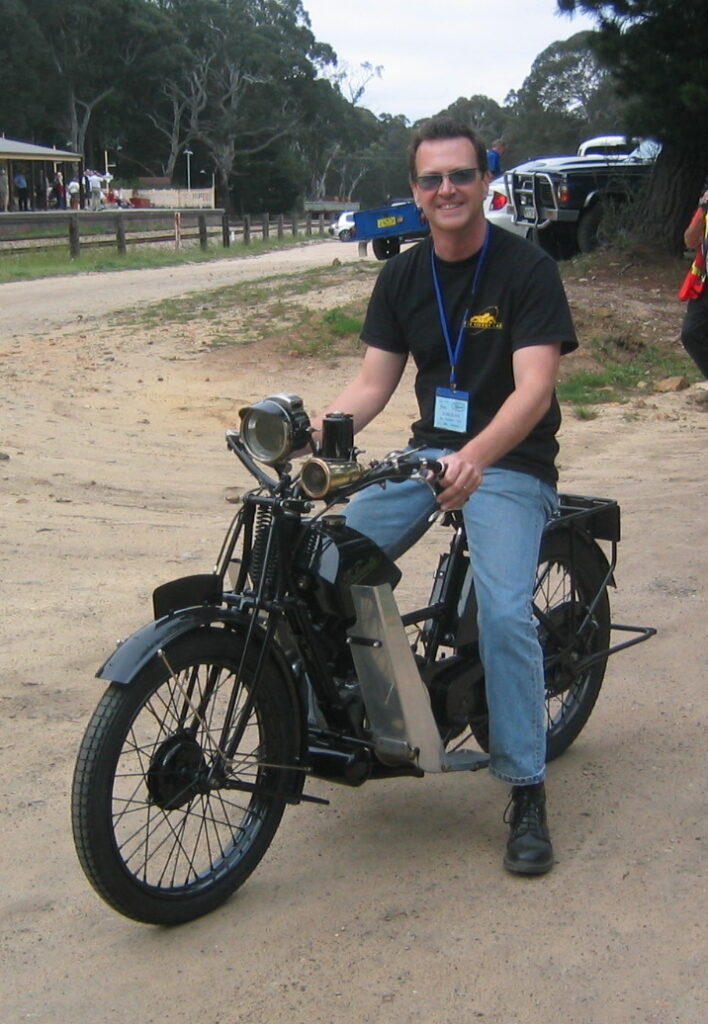
Speaking of trains, that’s Neville Smith in front of the train itself – Neville rode his Venom down the footpath to join us at our half-way point, and pose for a pic in front of the City of Lithgow. The train serviced the mines in the area.
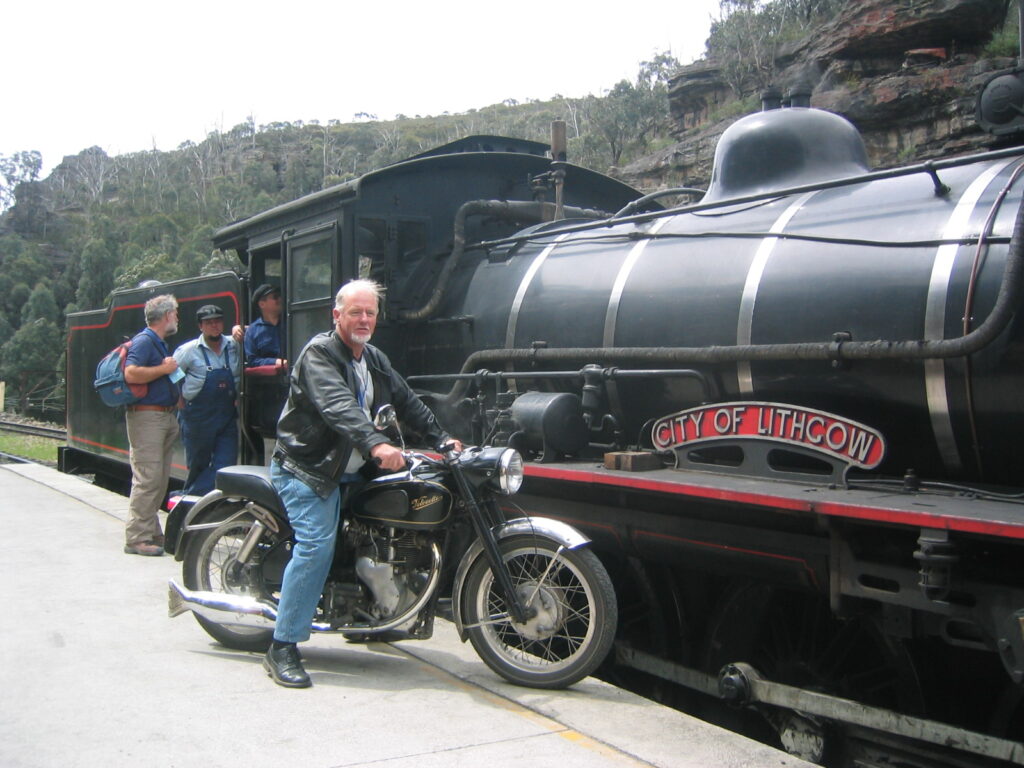
We rode through some spectacular and bucolic areas, and most everything was green as it was spring. The minor roads through the hills and forests were nearly empty, and a few of them were worthy of a good scratch.
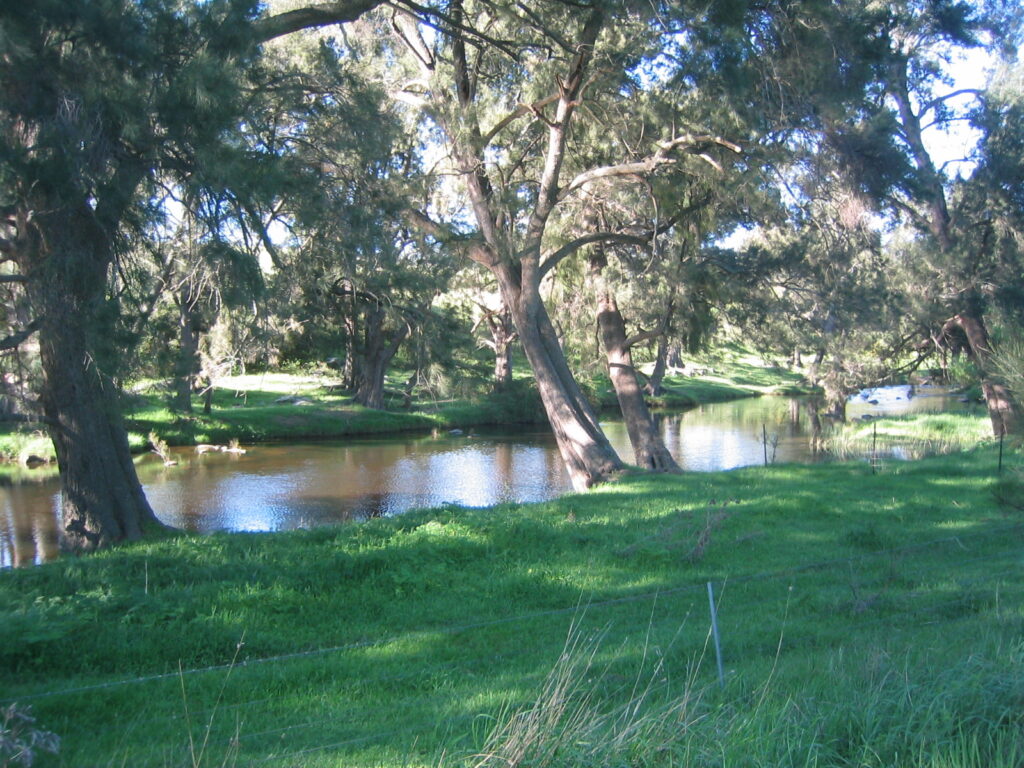
I enjoyed following John through the unfamiliar territory – as you can see from the video, his pace is a little quicker than the rest of the rallyists! And he was two-up with wife Di on the back of his Venom Clubman, ‘Kamahl’ – this is the clubman which dropped a valve seat on my watch (at the time , I was 20 miles off-route, down a dirt road, exploring some trees south of Perth, in 2003).
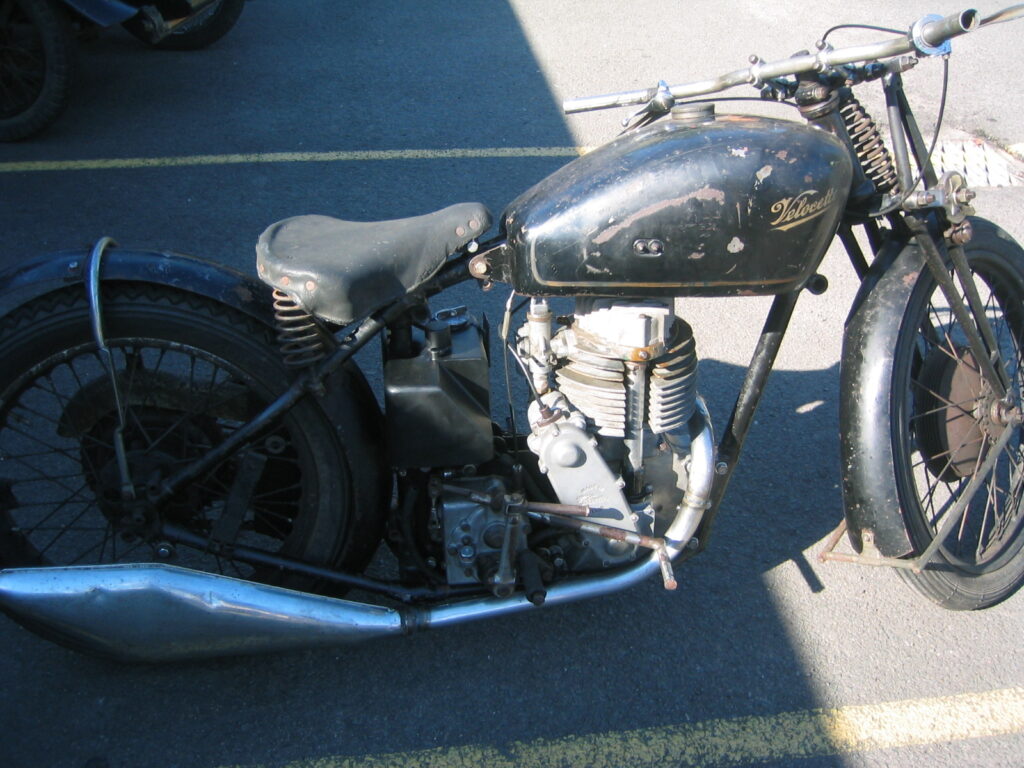
Next pair of photos shows a most interesting machine – an Aspin rotary-valve experimental Velocette. The Aspin engine uses a rotating sleeve for the cylinder wall, which has holes cut in strategic points to create the ‘valve’ timing. At the sleeve rotates, the hole for the carb intake opens, and the fuel mixture is sucked in. Then, after combustion, as the cylinder rotates further, the port for the exhaust opens – it’s all similar to a two-stroke engine with transfer ports, but the piston goes up and down in standard four-stroke fashion, and the fuel only comes into the combustion chamber, which is flat or domed at the top, but contains no valves.
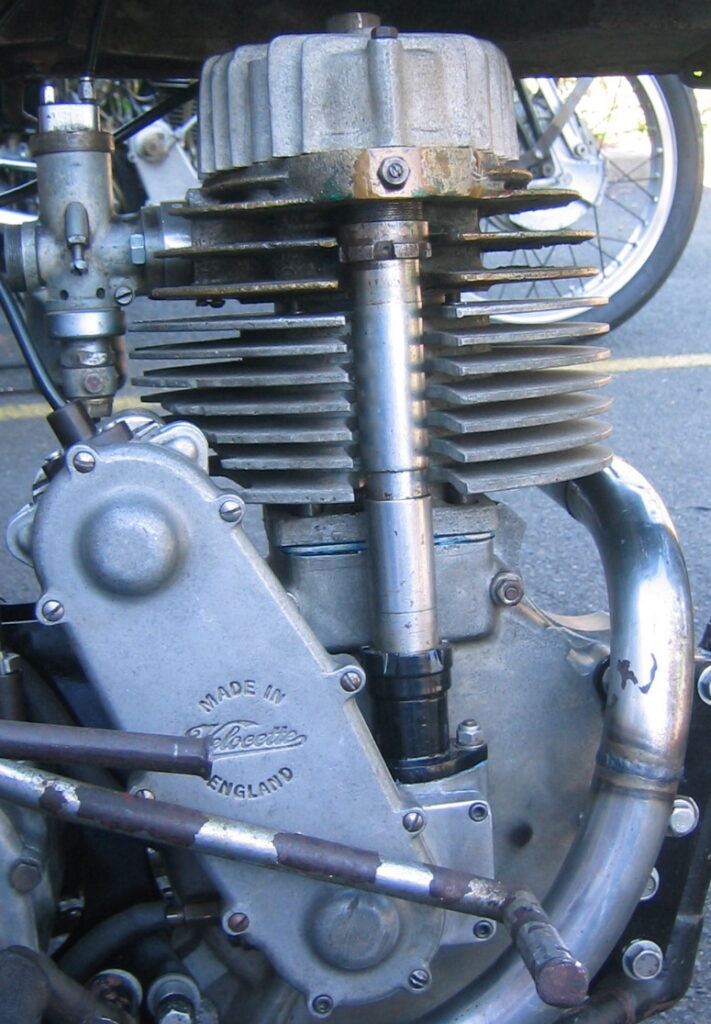
The barrel is rotated by the camshaft tower from a KSS, but instead of a cambox on top, the top of the barrel is serrated like a gear, and is driven by the bevel gear on top of the cam drive shaft. See the photos from some sense of how this engine is put together.
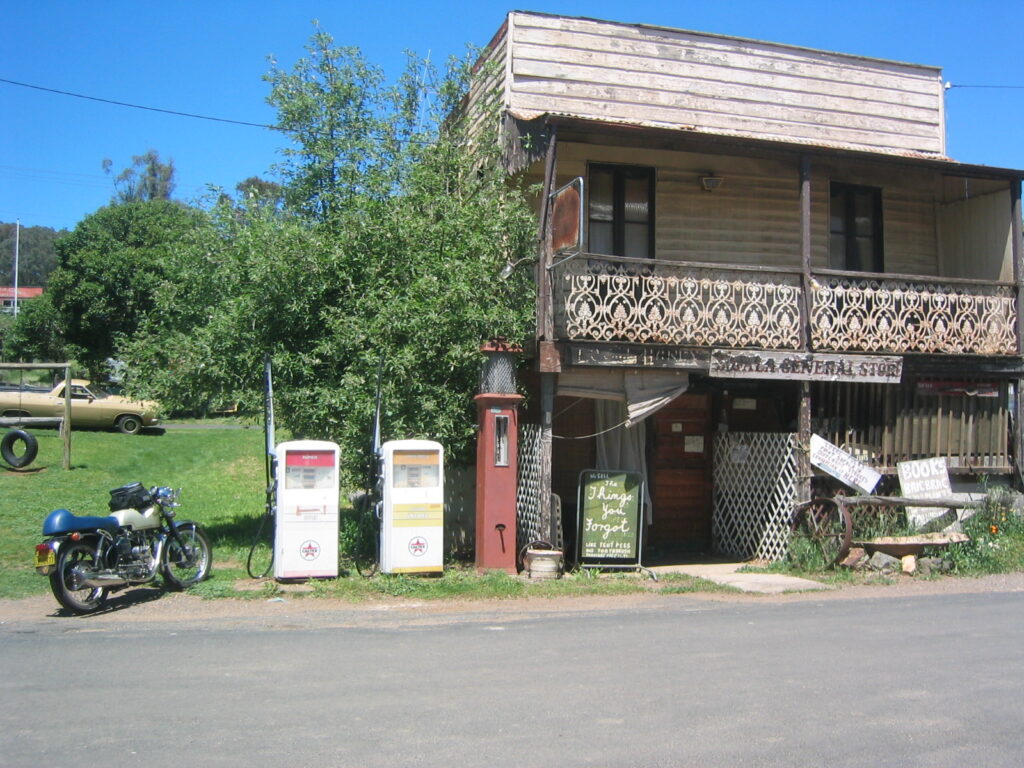
Next pic is in the hamlet of Sofala, with John’s Thruxton parched for some non-existent gasoline… this had been a mining town, which now relies on tourism – a mining museum and several cafes made up the commercial center, and the Gold Rush buildings looked remarkably like the California versions.
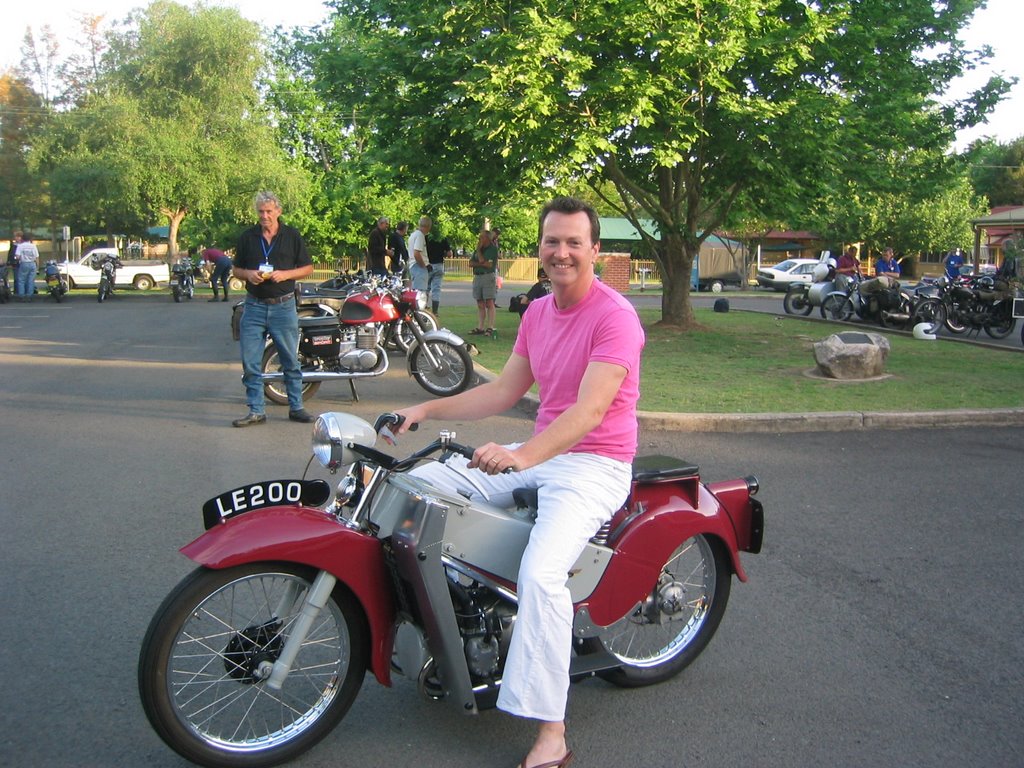
This photo documents the only time you’ll catch me wearing flipflops on a motorcycle, but the bike is RUBY, an infamous little beastie owned by Keith Canning, president of the VOC Australia. It’s an LE MkIII, and is a veteran of several long rallies, often two-up! I’ve owned an LE before, and have to admit it has charms… quietness, smoothness, etc, especially the styling, which is so utilitarian as to be beautiful.
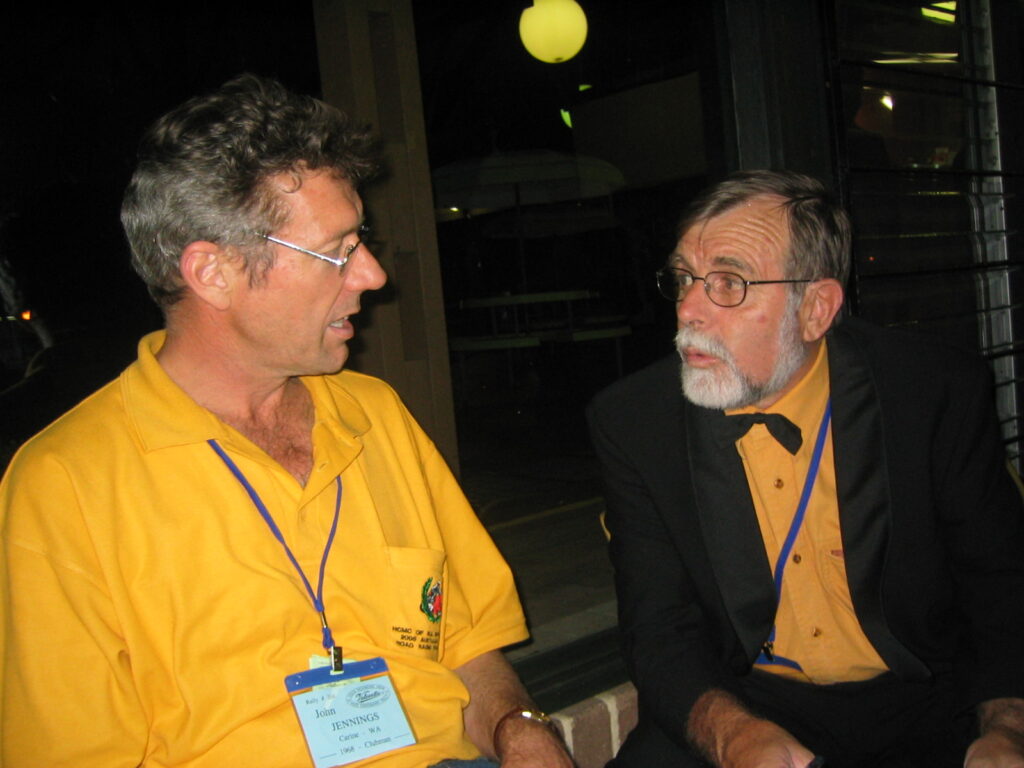
Next photo shows the gentlemen in question; John Jennings and Dennis Quinlan, deep in discussion about technical matters, no doubt. You’ll also note that they’re both wearing black and gold, as is the habit of Aussie club officers at their big awards banquet, at the end of each rally. Dennis has an encyclopedic knowledge about racing Velocettes, and I rely on him frequently for information and tidbits about their history, lineage, and whereabouts!
